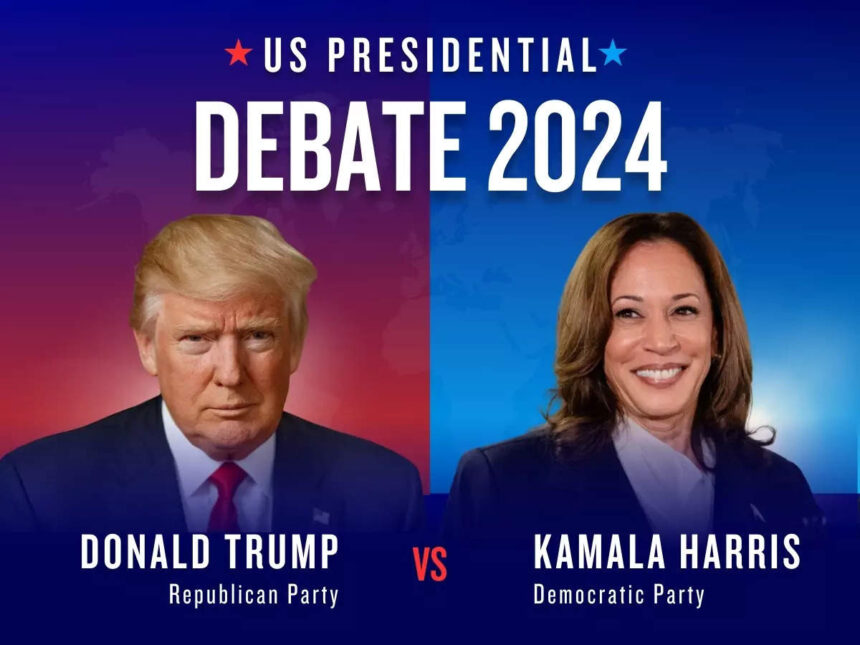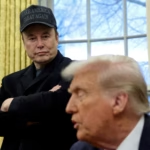The much-anticipated debate between Donald Trump and Kamala Harris took place on September 10, 2024. Both candidates made several bold claims, many of which were quickly fact-checked by moderators and independent organizations. This article explores the major fact-checks from the debate, highlighting falsehoods and exaggerations made by both sides.
Trump’s False Claim About Haitian Immigrants Eating Pets

Donald Trump repeated a false claim during the debate that immigrants in Springfield, Ohio, were “eating the pets” of local residents. This story had been circulating on right-wing platforms but was debunked by Springfield law enforcement officials. According to authorities, there were “no credible reports or specific claims” of pets being harmed by immigrants in the area. Despite this, Trump doubled down on the claim, citing hearsay from television reports.
Trump’s Baseless Allegations About Undocumented Voters

Trump continued to push the narrative that Democrats were attempting to get undocumented migrants to vote in the 2024 election. This claim, however, has been repeatedly debunked by various studies. Data from sources, including the right-wing Heritage Foundation, show that instances of noncitizens voting in U.S. elections are extremely rare, and undocumented migrants voting is even rarer.
Trump’s Inaccurate Inflation Figures
During the debate, Trump claimed that inflation had reached “probably the worst in our nation’s history” under the Biden-Harris administration, suggesting it hit 21%. This claim is untrue. While inflation did spike to 9.1% in mid-2022, this was far below the inflation rates of 14% in the 1980s and 11.1% in 1974.
Trump’s Misleading Claims on Late-Term Abortions
Trump attempted to portray the Democratic stance on abortion as extreme, falsely claiming that Kamala Harris and Tim Walz supported “abortion in the ninth month” and even “execution after birth.” Moderator Linsey Davis quickly fact-checked this claim, pointing out that no state in the U.S. allows the killing of a baby after birth. CDC data also shows that abortions after 21 weeks (about five months) of gestation are rare, comprising less than 1% of all abortions.
Trump’s False Claim About Bipartisan Support for Overturning Roe v. Wade
In his argument for overturning Roe v. Wade, Trump claimed that “every legal scholar, every Democrat, every Republican, liberal, conservative” wanted the decision brought back to the states. This statement is false, as many legal scholars filed briefs to preserve Roe v. Wade. Polls also show that a majority of Americans disapprove of the decision to overturn it.
Trump’s Falsehood About Germany and Renewable Energy
In his closing remarks, Trump claimed that Germany had failed in its attempt to switch to renewable energy and had “gone back to building normal energy plants.” This claim was fact-checked by the German Foreign Office, which clarified that more than 50% of Germany’s energy comes from renewables and that coal and nuclear plants are being phased out, not reintroduced.
Harris’ Exaggeration on Unemployment During Trump’s Term
Kamala Harris claimed that Trump left office with “the worst unemployment since the Great Depression.” While unemployment reached a peak of 14.8% during the pandemic under Trump’s presidency, it had fallen to 6.4% by the time Joe Biden took office. This fact-check shows that while unemployment spiked, it did not remain at historic highs throughout Trump’s tenure.
Harris’ Unclear Stance on Fracking
Harris stated that she had made her position on fracking “very clear in 2020.” However, this is not entirely accurate. During the 2020 Vice Presidential debate against Mike Pence, Harris only stated that “Joe Biden will not end fracking” without clearly specifying her stance. Initially, Harris had supported a ban on fracking during the Democratic primaries, but her views have since changed, and she no longer advocates for a ban.
Conclusion: Fact-Checks Play a Vital Role in Presidential Debates
Tuesday’s debate between Donald Trump and Kamala Harris revealed numerous falsehoods and exaggerated claims on both sides. Trump made over 30 false statements during the debate, including claims about inflation, immigration, and abortion. Meanwhile, Harris was also flagged for exaggerating job losses under Trump and not fully clarifying her stance on fracking.
As voters, it’s crucial to verify the facts and ensure that decisions are based on accurate information, especially in an era where misinformation can easily sway public opinion. Both candidates were held accountable by moderators and independent fact-checkers, shedding light on the importance of transparency and truth in political discourse.









